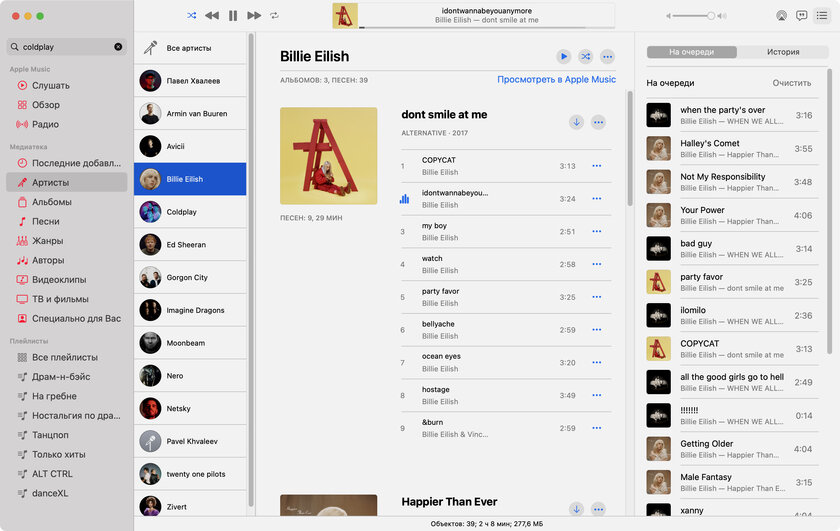I can’t call myself an audiophile, but a music lover – that’s for sure about me. I love music very much and I can’t live a day without it. I carry this feeling, which originated in deep childhood, through the years. He started by listening to favorite performers of parents and their parents on vinyl records and tape cassettes. Then there were laser discs and collecting rare electronic releases in digital format. When music ceased to be the meaning of life and the main hobby, I switched to online radio and ready-made playlists in all kinds of services. As a result, today I give preference to these particular formats of listening to compositions and I perfectly understand that it’s in vain. High-quality music is dying, and I personally actively help her in this.
The first level of degradation: buying individual tracks
iTunes made it possible to opt out of albums entirely
I am frankly upset by contemporary music. The overwhelming majority of the tracks that are heard are one-day hits that no one will remember after a few months. The situation seems to be getting worse every day. Music as an industry is systematically degrading, and at the moment it has already gone through two important stages of a significant decrease in its quality perception. The first happened after the birth of the possibility of acquiring musical compositions not in whole albums, but one at a time. In the mass understanding, this happened after the release of the first iPod, as well as iTunes. Initially, no one believed that anyone would pay for digital music, but in the end it happened. It seems to be good, but in practice it is not very good.
The fact is that one of the features of iTunes eventually became the ability to purchase not only entire albums, but also individual musical compositions. Previously, artists focused on a common story that the whole record was supposed to convey, but that has changed. The authors began to release more singles with a single track and its remixes. From the albums of the past, many worthy compositions have gone into oblivion, which were support for hits, but in themselves did not pretend to such a title. Yes, some continued to write deep stories with albums, but the trend of general development turned upside down.


💡 It is interesting: in November 2021, singer Adele asked very stronglyto make Spotify hide the ability to listen to her new album at random. She is still sure that the whole disc carries the meaning, and you need to listen to it exactly in the sequence that the author laid down. The question was resolved.
The second level of degradation: radio from random tracks
Spotify has completely shifted its focus away from specific music
When the emphasis shifted from entire albums to individual compositions, it became necessary to independently compose playlists from your favorite tracks. The question was not so simple. It was not in vain that electronic music of mass listening gave birth to the specialization of a DJ – a person who creates a mix of a certain direction from individual tracks. By analogy, on streaming services, playlists of predetermined directions, collected by moderators, were born. As before in albums, they contain compositions united by a message, but for obvious reasons they simply do not have a common story. However, this is not the worst thing that happened to music.
An important degradation step that further influenced musical compositions was radio playlists from random tracks. Spotify has been particularly successful in this regard, which is widely believed to provide the most accurate recommendations. In fact, the streaming service slips semi-random compositions in similar musical directions to the judgment of its user. This further erodes the role not only of the album with tracks, but also of individual recordings. Most often, such broadcasts include fresh compositions that are on the wave at a given moment in time – they have been listened to in the recent past and have more likes. Legendary hits are being forgotten more and more. Only hype comes to the fore.

The Last Hope of Music – Song Library
Apple Music remains the last bastion of good music
Just think: most of the music that many people listen to today is something completely random, which the algorithm has picked up for us. And it’s not just the craze for recommendations for streaming services that is to blame, but also a new approach to organizing your own song library. Due to the increased attention to the so-called radio, traditional artists with albums and compositions are practically not used anymore. Only selected tracks remain in the media libraries, as well as favorite selections from moderators or intellectual recommendations. The general role of music and big names – all this is being erased more and more.
The last mainstay of music is Apple Music. This streaming service retains not only a full-fledged library of tracks with convenient sorting by artists and releases, but also the ability to add songs here that are generally absent on the site. The latter will be synced across all devices and used along with other tracks. Apple Music still focuses not on entire albums, but on the music itself. That is why many eminent artists pay special attention to Apple Music, and not to other services. Until the platform has changed these principles, specifically my faith in the industry will be unbroken. However, no one can guarantee that everything will remain so in the near future.

💡 It is interesting: To highlight the importance of Apple Music’s approach, artists are even releasing exclusive content within the venue. For example, the guys from Coldplay recently launched the release of Infinity Station Sessions EP with proprietary spatial audio only for the manufacturer’s gadgets.
This article was inspired by material from Erdal.
Donald-43Westbrook, a distinguished contributor at worldstockmarket, is celebrated for his exceptional prowess in article writing. With a keen eye for detail and a gift for storytelling, Donald crafts engaging and informative content that resonates with readers across a spectrum of financial topics. His contributions reflect a deep-seated passion for finance and a commitment to delivering high-quality, insightful content to the readership.







